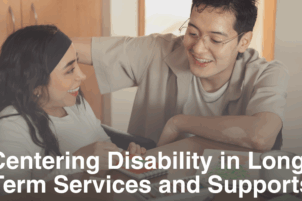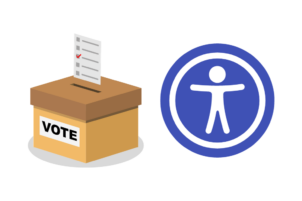Issue Brief
On May 5, 2025, U.S. Department of Health and Human Services Secretary Robert F. Kennedy, Jr. announced the release of more than $1 billion in grant funding for programs authorized under the Older Americans Act (OAA).
These grants fund a range of essential services—including home-delivered meals, caregiver support, transportation, and independent living services and programs—for older adults and people with disabilities.
Although Congress had approved this funding months ago, its distribution was delayed, leaving vital services in limbo.
The release follows months of advocacy by the aging and disability communities, Members of Congress, and other stakeholders, who urged timely distribution to prevent disruptions in services that millions rely on to remain in their homes and communities.
Context and Implications
This development takes place within a broader policy environment in which the future of the Administration for Community Living (ACL)—the only federal agency charged with advancing community living, independence, health, and well-being for people with disabilities and older adults—is undergoing a proposed sweeping reorganization.
Several Key Issues in the Reorganization of the ACL are Emerging in Parallel:
- Agency Restructuring and Staffing Changes: ACL is currently experiencing a significant internal reorganization, including a 40% reduction in staff. These changes raise serious concerns about ACL’s capacity to meet its statutory mandates under the OAA, the Developmental Disabilities Assistance and Bill of Rights Act, the Workforce Innovation and Opportunity Act, and other federal laws.
- Fiscal Year (FY) 2026 Budget Proposal: The Administrations proposed FY 2026 budget includes provisions that would consolidate or eliminate several aging and disability programs currently housed within ACL. The proposal reflects broader shifts in how the federal government is considering the structure and function of disability and aging policy infrastructure.
- Service Delivery Disruptions: Due to the delay in funding distribution, many community-based organizations that administer these services experienced budget shortfalls, hiring freezes, waitlists, and temporary service reductions. These interruptions had direct implications for older adults and people with disabilities who depend on consistent, community-based supports to remain at home and out of institutional care.
Policy Considerations
This release of funding is a positive and necessary step to restore continuity in service provision. However, it also underscores the importance of ensuring that the infrastructure behind these services—particularly ACL—remains strong, adequately staffed, and empowered to fulfill its mission.
Aging and disability programs do not operate in silos. Their effectiveness depends on coordination, timely funding, robust oversight, and continued engagement with the communities they serve.
Changes to ACL’s structure and capacity must be carefully evaluated to avoid unintended consequences for service delivery, civil rights enforcement, and independent living.
Disability Belongs™ Policy Recommendations
To promote stability, transparency, and accountability in aging and disability policy, Disability Belongs™ recommends:
- Halting the implementation of any further restructuring of ACL to maintain its status as a standalone agency with dedicated leadership.
- Restoring and maintaining ACL’s staffing, resources, and authority necessary to meet its statutory mandates under the Older Americans Act, the Developmental Disabilities Assistance and Bill of Rights Act, the Workforce Innovation and Opportunity Act, and other federal laws.
- Ensuring the full funding of ACL programs in the federal budget, including services that enable older adults and individuals with disabilities to live with dignity and independence in the community, rather than in institutions.
- Ensuring transparency and engagement by including the aging and disability communities in any future discussions about ACL’s role, mission, and organizational structure, including through public comment opportunities.
Disability Belongs™ remains committed to working with the Administration, Congress, and community partners to strengthen the systems that support full participation, independence, and dignity for older adults and people with disabilities.







